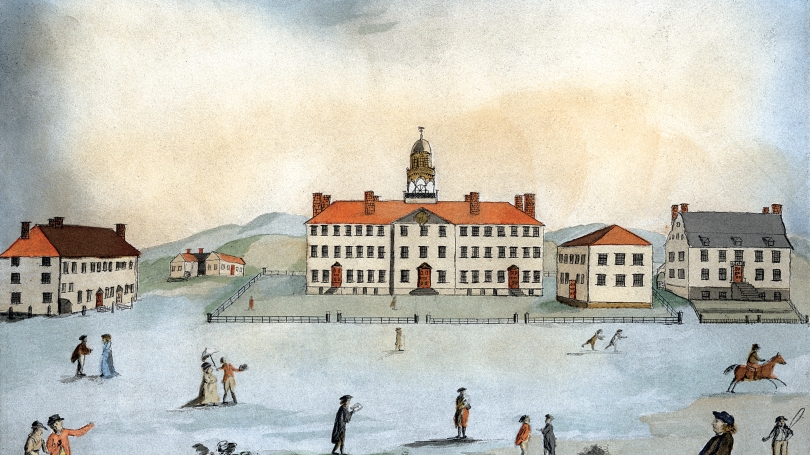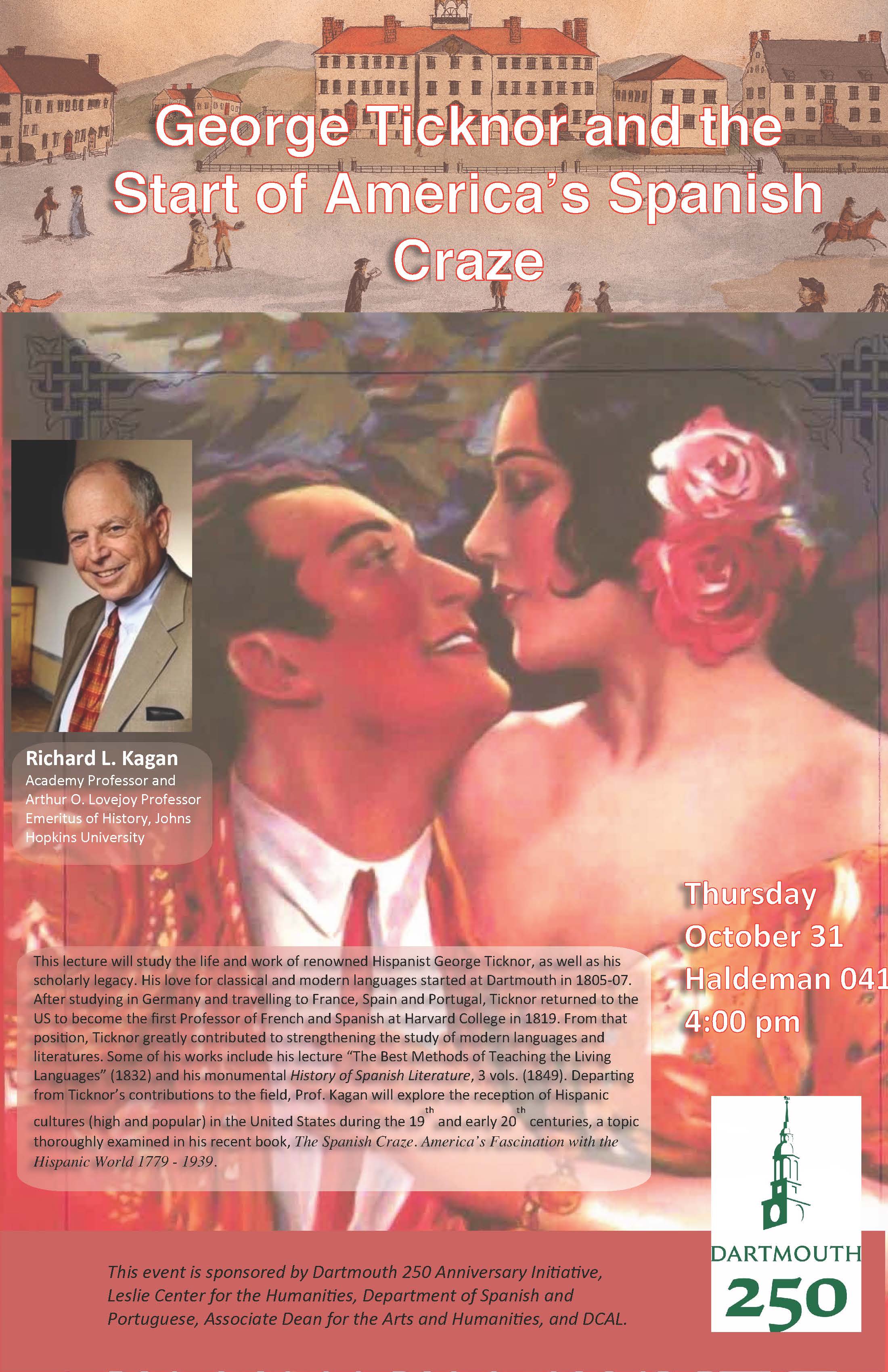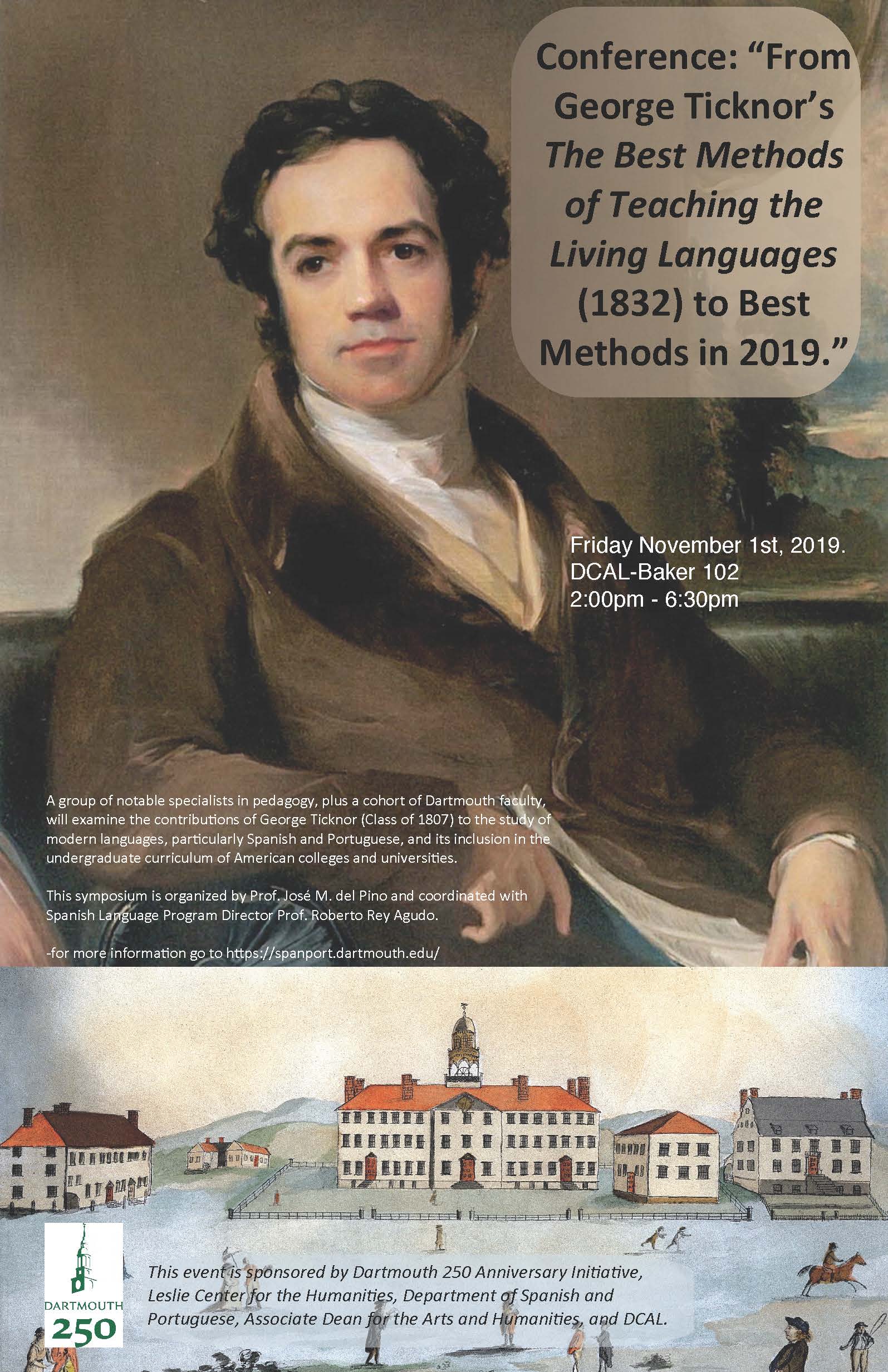
- About
- Undergraduate
- Foreign Study
- Student Opportunities
- La Casa
- News & Events
- People
Back to Top Nav
Back to Top Nav
Back to Top Nav
Back to Top Nav
Back to Top Nav
This conference will celebrate the life and work of renowned Hispanist George Ticknor '1807, as well as
his scholarly legacy. His love for classical and modern languages started at Dartmouth in 1805-07. He
completed his education with one of the most influential literary historians of the day, Friedrich
Bouterwek at University of Göttingen in Germany (1814-1818). After travelling to France, Spain and
Portugal, Ticknor returned to the US to become the first Professor of French and Spanish of the newly
created Smith Professorship of Romance Languages and Literatures at Harvard College in 1819. From
that position and during almost two decades, Ticknor greatly contributed to strengthening the study of
modern languages and literatures and their inclusion in the Harvard curriculum, a consequential step
that was followed by the most prominent institutions of higher education in the US during the 19th and
early 20th centuries. Some of his works include his lecture on "The Best Methods of Teaching the Living
Languages" (1832) and his monumental History of Spanish Literature, 3 vols. (1849). Ticknor's History,
based on the German idealist notion of national literatures, had an enormous influence. Translated into
Spanish and French, it was adopted in Europe and the United States as the main guide for the study of
Spanish Literature. Ticknor was also a prominent figure in the cultural scene of his native Boston. Part of
his impressive personal library was bequeathed to the newly created Boston Public Library in 1852, an
institution he helped establish. Other important figures very much influenced by Ticknor were Henry
Wadsworth Longfellow, who succeed him at the Smith Professorship, and historian William H. Prescott
(a pioneer of modern historiographical research in the United States who published a seminal work on
the reign of Ferdinand and Isabella of Spain, as well as groundbreaking books about the conquest of
Mexico and Peru). The conference will also pay attention to the figures of other American scholars, book
collectors and philanthropists whose activities helped promote and disseminate Hispanic letters, arts,
and culture in the United States, in particular the founder of the Hispanic Society of America, Archer
Milton Huntington.
A group of notable specialists in the field, plus a cohort of Dartmouth colleagues will participate in
studying the contributions of Ticknor and his circle to the establishment of the study of modern
languages and the consolidation of literary history and philology in American universities, dominant
trends until a few decades ago. In addition to this central perspective, participants will also expand this
debate to other areas less developed in Ticknor's time, like the literary production of Latin American
countries as well as the contested notion of Hispanismo.

